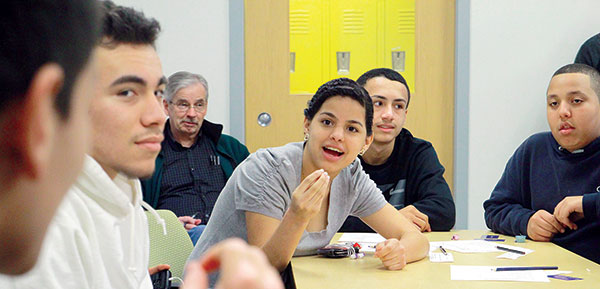© Strategies for Youth. All rights reserved.
Juvenile Justice Jeopardy helps youth navigate interactions with peers and police and understand the legal consequences of their actions.
Juvenile Justice Jeopardy™ (JJJ) teaches youth how to navigate interactions with police and peers, understand the legal consequences of their actions, as well as strategies for desistance from peer pressure to engage in risky behavior. The game also teaches youth the short and long term legal consequences of having arrest and court records. The game takes 90 minutes to play and is aimed at being realistic: that is, it focuses on what happens in police/youth interactions.
Derived from the television Jeopardy game, JJJ offers youth an opportunity to explore what they think they know about the juvenile justice system and how the media portrays teen violence and criminality to them—and how much they believe it. The game is customized to each jurisdiction’s laws.

Many adults assume youth know what is right or wrong, legal or illegal. Many youth are certain they know the law, their rights, and how to interact with law enforcement.
All too often, both assumptions are wrong.
These views can lead to an escalation of interactions with officers and assumptions by officers and other authority figures that youth are intentionally defying the law when, in fact, they are often doing what they perceive is legal.
Download JJJ Game Overview to learn more.
SFY typically develops two versions of the game for each jurisdiction. One version focuses on “street” issues youth are likely to encounter. The second version uses school districts’ school code of conduct to explain rules and laws that apply in the school setting.
SFY develops an ad hoc group of stakeholders to focus questions on issues that lead to the greatest number of arrest of youth. Once consensus is reached, SFY provides on-site game leader trainings.
Download The JJJ Game Process to learn more.
© Strategies for Youth. All rights reserved.
Please sign up for our newsletter to the latest on Strategies for Youth’s efforts to create safe and thriving communitities for our children.